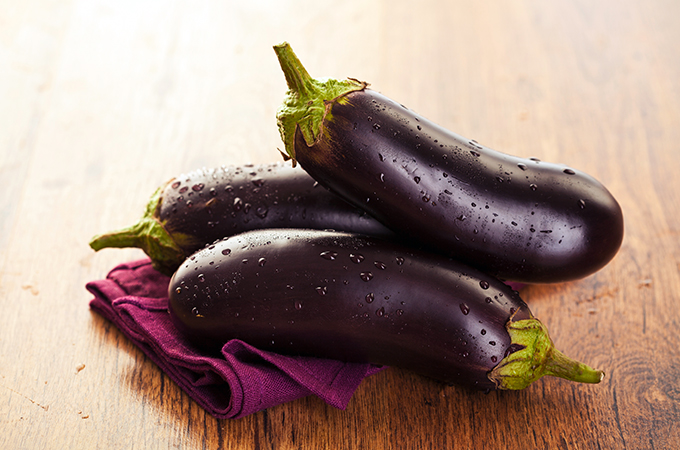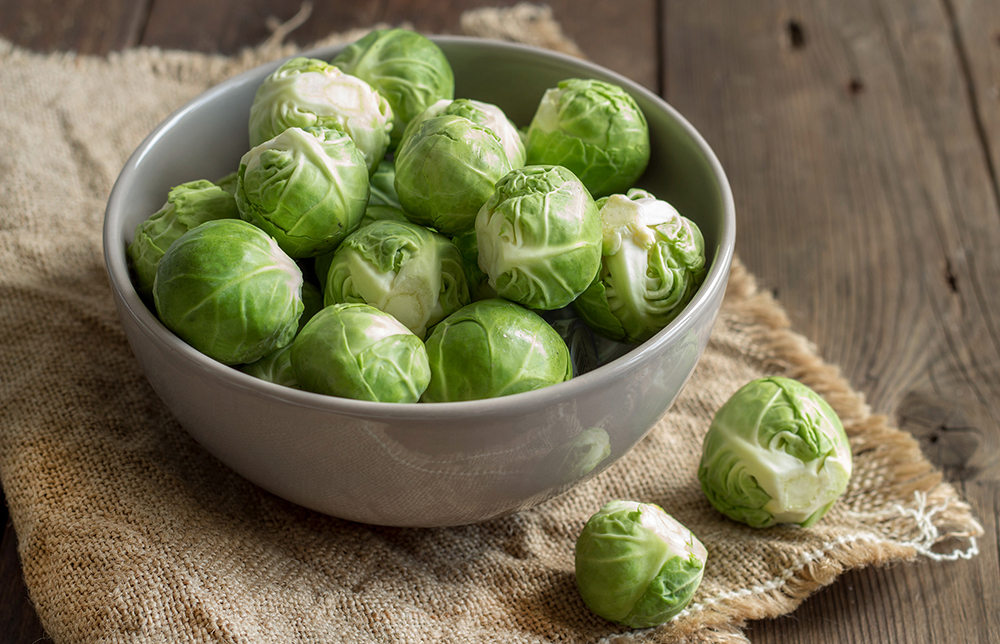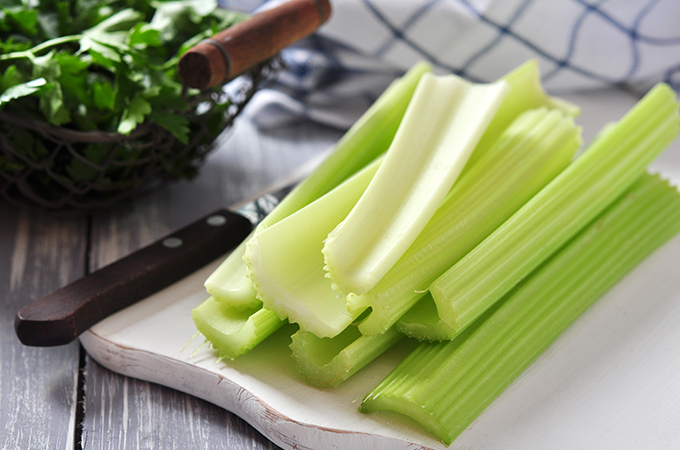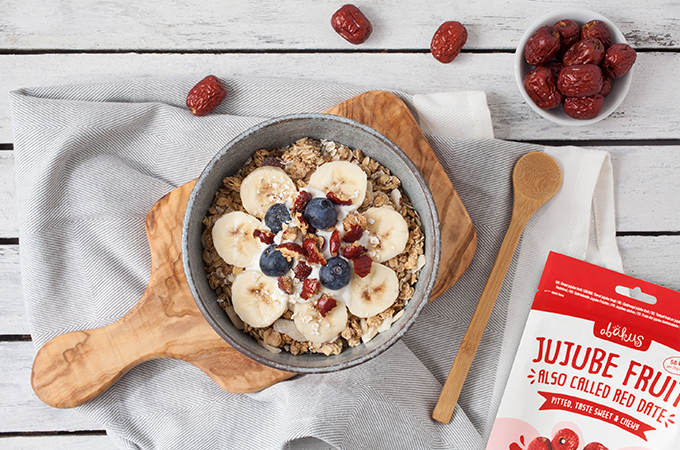We may say it at the start of every year, this is it – 2018 marks the beginning of a new me. I’m taking back the reigns and I’m going to be the very best version of myself, beginning with a healthy diet and lots of exercise. I’m just going to finish those Christmas chocolate’s first so they’re all out of the way and won’t tempt me…
Sound familiar?
Every year we enter the new year with high hopes of turning things around, filling our plates with salads and our lunch boxes with fruit but this is where we think we may be going wrong. Without a good variety of flavours in our diet we quickly become bored and turn to our favourite comfort foods, and it isn’t long before we lose sight of our healthy ambition altogether. Well this year we’re putting our foot down and we’re going to give healthy eating a proper, well-informed go and with the help of some top nutritionists we’ve compiled a list of tasty ingredients to build into our diet that are not only packed with flavour but are full of properties that keep our bodies running as smoothly as possible.

SPINACH
This leafy green may be synonomous with Popeye, but it does more than just give you muscles. Frida Harju-Westman, in-house nutritionist at the health app Lifesum, tells us that spinach is packed full of antioxidants that can actually improve memory and learning skills. It also boasts potassium making our brains more responsive and lots of Vitamin C to help boost our immune systems enabling us to better fight infections. Who knew Popeye’s favourite leaf gave us so much more than strength?
SWEET POTATO
Did you know that sweet potato contains a whopping 65% of your daily minimum requirement of Vitamin C? Chomping down on this root vegetable helps reduce blood sugar levels and insulin spikes whilst helping build muscle which is great if you’re including exercise in your healthy lifestyle plan this January and makes for a great alternative to potatoes if you’ve been advised to cut down. Using a spiralizer to prepare your sweet potato is great for making fun crisps little ones will love, or cut them up into chunky chips and they’re delicious with a juicy steak.
BEANS
Beans are a great source of nutrition, and there are more varieties out there than the storecupboard favourite baked version. Beans contain an essential amino acid which helps the body turn fatty acids into energy and in turn help to lower cholesterol. Beans are a great ingredient to include in your meals as they contain folate that can boost your mood, but are also rich in protein, iron, fibre and calcium. If you’re new to beans then white varieties are the best to introduce into your diet, and beans like cannellini or haricot are great for adding into your favourite chilli con carne alongside the staple kidney bean.

AUBERGINE
Aubergine is particularly good for boosting your metabolism thanks to the amount of potassium it contains, whilst if you’re having trouble sleeping the levels of magnesium that the aubergine contains can help relax your muscles and send you into a deep slumber. When cooking with aubergine make sure you keep the skin on advises Frida… it boasts nasunin which is as potent phytonutrient and antioxidant that has anti-ageing properties and combined with the high water content they feature, your skin will be well hydrated too helping it look glowing and healthy.
PUMPKIN
Not just for Halloween, pumpkin should be enjoyed all year around as it’s filled with essential nutrients that help strengthen the body’s natural immune system. As well as folic acid, manganese, vitamin C and zinc it also contains riboflavin, which Frida explains help the body fight off bacterial functions. Although pumpkin may be harder to get your hands on outside of October, pumpkin seeds are readily available in supermarkets and health food shops throughout the year and these contain an oil that has high levels of phytoestrogen, a plant-based compound that is hugely beneficial for preventing high blood sugar.
BRUSSEL SPROUTS
Another seasonal pick, Brussel Sprouts are not only rich in Vitamin C and K which help to maintain healthy bones but they also contain carotenoids that are essential for supporting good vision. They have a very low sodium and fat content that makes them great for supporting a healthy heart and if you find you have some leftover at Christmas they are delicious in a vegetable curry!

RED MEAT AND OILY FISH
Within the UK we’re often lacking in sunshine which is essential for us to get our daily intake of Vitamin D, so to counteract the lack of sunlight London based nutritionist, Antonia Magor (DipNT mBANT rCNHC AFMCP) recommends adding red meats and oily fish to our diets. Antonia continues that Vitamin D influences the functioning of our nervous, muscular and immune systems so to be best prepared to fight off cold and flus when we can’t get out in the sunshine we should try these food types as a good substitute.
GARLIC
It may be good for keeping vampires at bay and is well known for keeping your heart healthy, but garlic is also great for helping boost our ability to fight infections due to the antioxidants it’s rich in that fight free-radicals within the body, and Antonia explains that it ‘may also have an immunomodulatory effect encouraging the nonspecific immune cells’. To make the most of these powerful compounds garlic should be consumed raw once crushed. Exposing the garlic to oxygen allows the enzymes to activate and become more available so if you choose to boost your garlic intake remember to crush your garlic about 15 minutes before you need it to give it plenty of time to reach it’s most powerful state. Raw garlic can be quite strong to eat so try within dips and dressings for an easy way to up your garlic consumption and create more flavoursome sides while you’re at it!
RADISH
Radish is brilliant for detoxifying the liver and is high in fibre which supports the health of your gut. Just 100g of this root vegetable provides you a massive 25% of your daily Vitamin C! Nutritional Therapist Libby Limon (mBANT CNHC) explains that ‘bilirubin is a waste product that builds up in the liver and derives from the breakdown of red blood cells, which results in a yellowing of the skin. Radishes helps the process of flushing out the bilirubin in the liver’ and so can help reduce the likelihood of you contracting jaundice. Radishes do more than just support your liver, they’re invaluable for supporting healthy kidney health too. Radishes are a diuretic that means they help cleanse the kidney of toxins that in turn decrease the accumulation of toxins in the blood.

CELERY
Libby continues with the benefits of celery, telling us that celery helps to reduce uric acid while stimulating urine production as well as having anti-microbial effect. Just like cranberries are known to help prevent urinary tract infections, celery can help with preventing bladder disorders and kidney problems. If that wasn’t enough the powerful mix of antioxidants found in celery helps lower your risk of developing conditions like cancer, macular degeneration, arthritis and even Alzheimer’s disease. Suddenly chomping down on a celery stick sounds a lot more tempting doesn’t it? If you’re really looking to up the anti on the health front you could try dipping it in houmous sprinkled with pumpkin seeds to really cram in the vitamins.
WHOLEGRAINS
Swap your usual white bread or pasta for wholegrain or multi-seed options may just give you the health boost you’re looking for according to naturopathic nutritionist, Amy Morris from Water for Health. Amy explains that not only do unrefined, wholemeal carbohydrates offer slow-releasing energy rather than the short spike given from starchy alternatives, they also help you feel fuller for longer, keep blood sugar levels steady and banish sweet cravings. This is an easy swap to make in your day-to-day diet, but if you’re stuck for ideas great options include quinoa, rye bread or spelt.
JUJUBE BERRIES
Tipped to be the “hot new superfood of 2018” byRefinery29, Metro and Evening Standard we think you’re going to start seeing this naturally sweet berry everywhere in no time, but more than a passing fad this fruit is packed full of amino acids and are high in fibre helping with digestion and a slow release of energy. They have been enjoyed in Korea and China for thousands of years and a handful of jujube fruit only has 58 calories making them a great guilt-free snack, and with a natural caramel taste without any added sugar they’re great for satisfying sweet cravings! Intrigued? You can find them here.

EGGS
Liam Mahoney, nutritionist at Grenade, recommends eggs if you have upped your exercise regime as part of your health kick and the yolks in particular contain not only Vitamins B-12, B-6 and A but also contain magnesium, iron, calcium, zinc and copper that are essential to support a healthy body so you can keep on top of your workouts. Many people focus on protein and carbohydrates when it comes to replenishing the body after a heavy gym session but the truth is that you would have to eat a lot of eggs to get a substantial amount of protein from them, which isn’t ideal as eggs are high in fat and cholesterol. Instead, Liam recommends eating one whole egg with five egg whites following exercise as you are still getting approximately 21g of protein from the food and all the vitamins the yolks offer without going overboard on the fat and cholesterol.
PORRIDGE
Another of Liam’s recommendations is the humble breakfast favourite, good ol’ fashioned porridge. Not only is it great at refuelling depleted glycogen levels after exercise it’s also a great carbohydrate source after a workout as it is so filling and will stop you snacking throughout the day. Porridge doesn’t have to be boring though, why not top it with a drizzle of honey and a handful of jujube fruit?
BAOBAB FRUIT
Haven’t heard of Baobab before? Neither had we, but chef Mick Élysée holds the popular African fruit as a must have ingredient with a wide variety of health benefits on top of tasting delicious. The dry pulp of the fruit that becomes the baobab powder is packed full of nutrients, is low in both sugar and fat and as 50% fibre is great for the digestive system. It is also a rich source of Vitamin C which helps boost your immune system, and with the highest antioxidant content of any fruit it’s a great choice for healthy and clear skin too. Mick explains that it has a light, refreshing taste similar to apricot or grapefruit, and when stirred into a smoothie or juice it’s a great ingredient to boost your metabolism too. If you’re interested in finding out more about Mick and his Afro-fusion cooking, you can find him in one of his pop-up restaurants around London or you can pick up a copy of his new book ‘Not Guilty’ due to be published in January 2018.
HONEY
Honey is a great prebiotic food and reaches the large intestine intact allowing the good bacteria found here to use it to make essential nutrients to help sustain a healthy self. On top of this, honey also has varying concentrations in polyphenols (polyphenols are thought to help reduce heart disease and cancer) boosting the body’s natural defences and a recent study shows that eating honey daily raises levels of disease-fighting antioxidants in the blood. It’s generally a healthier choice than sugar to sweeten food as it has no refined sugar, and any you have leftover can be applied to the skin – honey has antibacterial properties helping to heal and soothe scars, scratches, rashes and redness. Want to know more about all of the benefits you can get from honey? You can find out more from British honey brand Hive and Keeper here.

Have you got any go-to ingredients for when you’re on a health kick? We invite you to share them with us in the comments below so we can help build a bank of information to help anyone out there who is at the beginning of their journey to a healthier diet. In the mean time we recommend our Spiralized Waldorf Salad or our Vegetable Tarlets for a great way to start your new, healthier approach to food.

Leave a Reply